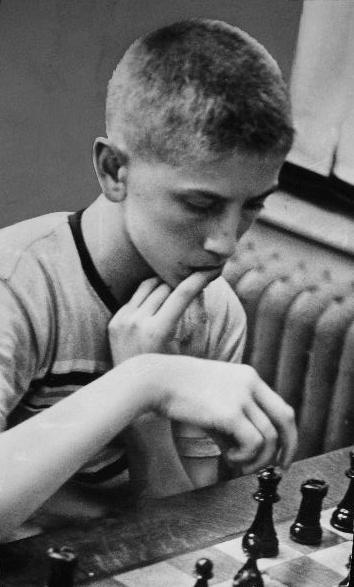
Figure 1.--The October 12, 1958 wire service photo caption read, 'Young Bobby Fishcher, hailed as a budding chess genius, is caught in a characteristic pose during a tournament match at the Manhattan Chess Club: nail-bitten fingers to lips, coatless and tieless, a study in deep concentration. This 15-year old Brooklyn boy has already won international fame for his chess play, but remains virtually unknown, outside of chess circles, in his own country.' When this photgrph was taken he ws the yiungest ever Junior US. Ch,pio, wihin in a short period he would be the yungest ever U.S. champion. " |

